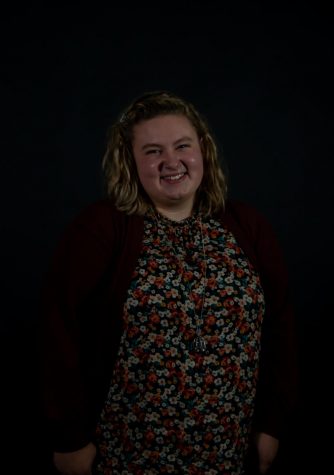Addiction services unavailable on campus

March 27, 2019
In 2014, a group called Recovery Warriors was created to serve individuals struggling with addiction in the Winona State University community. Today, the group is on hiatus due to lack of student involvement, and students in recovery are left to find other resources on or outside of campus.
Addictions Counseling assistant professor Mitch Moore was the faculty advisor for Recovery Warriors when it began. He described how Recovery Warriors was from its beginning until it was put on hiatus last year.
“We started a collegiate recovery program, Recovery Warriors, on campus in the 2014-15 school year, but it sort of floundered for about four years and never really got off the ground in any sustainable fashion,” Moore said. “So it’s really on hold at this time.”
Because the group is on hold until further notice, students rely on other avenues of support in the Winona community.
On campus, students can utilize the counseling center in the Integrated Wellness Complex. There is no copay for most services, and it is a convenient spot for short-term counseling.
The problem with on-campus counseling services is none of the counselors have addiction specialties listed under their bios on their website, and long-term counseling needs are usually referred to local specialists in town. Their resources website also lacks any support in town relating to addiction.
Once students step off campus, there is more support available. Common Ground, a center for addiction treatment in town, opened in Winona in 2014. Common Ground offers a range of services including substance use assessment, interventions, individual counseling, gender-specific group therapy, programs for people leaving jail, DUI classes and a jumpstart program, which helps people who do not meet the criteria for the outpatient or residential treatment. Common Ground offers a jail-based programs for people inside Winona correctional facilities and who are struggling with addiction.
According to a representative from Common Ground, all locations (Rochester, Red Wing and Winona) see a range of ages in people who attend. In Winona, she noticed a mixture of college students and people up to 50 years old will attend DUI classes, need interventions or come in for their group and individual therapies. Common Ground has a list of most Alcoholics Anonymous or Narcotics Anonymous support groups in town.
Erik Derby, a sophomore public health major, has struggled with alcoholism since their freshmen year of college. “I started drinking at the beginning of my freshmen year,” Derby said. “At first, it was just sort of for fun and to relax, but then it became more of a way for me to cope with my mental health issues. It eventually became something that was out of my control.”
During their freshman year, Derby had two incidents while drinking that caused them to try to commit suicide. It was not until hurting a close friend that Derby sought help for their alcoholism issues.
“The line between drinking a lot because I was a college student and drinking a lot because I was an alcoholic is difficult to see when you’re in it,” Derby said. “But I started to notice that when I would be super stressed out on campus, feeling my depression or anxiety, I would picture myself drinking alcohol and not be able to focus on anything else.”
Derby got to the point of desperation where they tried to steal alcohol from friends. Once those friends cut them off, Derby would try to make new friends or connections to try to get alcohol again. When Derby did make the decision to stop, they sought therapy. After a few referrals to different therapists, Derby found someone who could help them.
“It was like flipping on a light,” Derby said. “I could understand why I was having these issues and how alcohol was really hurting me. I can’t imagine what it would have been like if I tried to recover but couldn’t afford a therapist.”
Derby knows how lucky they are to afford therapy, as many people in the Winona community and beyond cannot. They realize there are limitations of the resources in town. Twenty-two of the 24 Alcohol Anonymous or Narcatics Anonymous meetings listed in Common Ground’s resource list took place in religious institutions.
“As an atheist and a queer person, I just don’t think I’d feel comfortable,” Derby said. “I know that they want to help, but I’ve been burned by the church before and I don’t think I would be comfortable going back to ask for help.”
While Derby is in recovery, there are students on campus who cannot afford therapy and do not want to go to a church-based group for help. While Recovery Warriors are on hold, there is a pause in services available to them that are both affordable and comfortable.












































